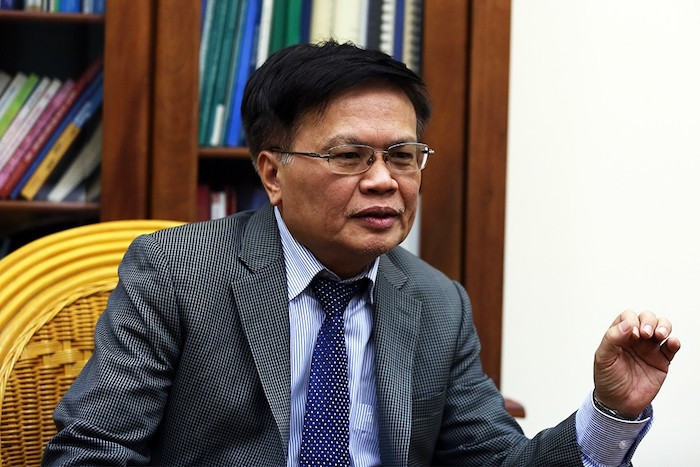
In 2011, private enterprises were acknowledged as an indispensable part of the economy, and have been an important driving force of the economy.
Legally, Vietnam made a big step forward, from not recognizing business activities to allowing people to trade what is not prohibited by the state and the law. Now, business freedom has been expanded and developed.
The private sector makes up 44 percent of gross domestic product (GDP), and State-owned enterprises (SOEs) 28 percent and foreign-invested enterprises (FIEs) 18 percent. They create the majority of jobs and are the biggest tax payers.
Strong brands, popular and competitive products are made by private enterprises. In the real estate sector, they created new urban areas and attractive tourism complexes. They built airports, highways and generated electricity. They even built electricity transmission lines, the field that only SOEs developed in the past.
Private enterprises have a presence in all fields, playing an increasingly important role in economic development.
Growing slowly despite great potential
However, problems still exist. Business households account for a large proportion of the economy which contribute 33 percent to GDP. Most of them just create income for families. They are still operating in the informal, unobserved sector.
Meanwhile, private Vietnamese enterprises with official registrations just make up 11 percent of GDP. SMEs and micro businesses now account for the overwhelming proportion, while the number of large enterprises is small.
Private enterprises have great potential to develop, but they face limitations. If these did not exist, they would thrive and have more brilliant achievements.
Private Vietnamese enterprises are growing very slowly. NCIF’s (National Centre for Socio-Economic Information and Forecast) report on 500 private enterprises showed that some enterprises are on the list one year, but excluded the next year. This shows unstable development of enterprises.
Though Vietnam’s economy is open to the world, most private Vietnamese enterprises, except those in agricultural production, cannot connect and join global value chains. They cannot take full advantage of the opportunities brought by free trade agreements (FTA)s.
Small investments
There are differences in treatment of private enterprises and FIEs in terms of law, policy and public opinion. The latter, for example, don’t receive many inspections, and they can easily find land to set up factories in industrial zones (IZs) or access land. Meanwhile, private Vietnamese enterprises are inspected regularly and if they make mistakes, they will be exposed.
The current laws cause private enterprises to hesitate to make large investments. Vietnam’s enterprises don’t spend money on research and development (R&D).
SMEs find it very difficult to access loans. The state’s policies on supporting enterprises to access loans seems inapplicable to them. They also find it difficult to access land.
To get land, they have to attend auctions, but SMEs can’t satisfy the requirements to attend. And without land, they can’t build factories or storehouses, and don’t have opportunities to expand production and business.
Newspapers, for example, report about "clean and not clean" farm produce. But there is actually only safe and unsafe produce. The way of reporting makes people think that private enterprises do business incorrectly. As such, the image of private enterprises is poor in the eyes of many people.
VN needs business force
The first generation of Vietnamese businesspeople, who appeared in the 1990s, and the second in 2000s, are getting old. Many of them still cannot find talented people to transfer the business. Their children have enough money to live for many more generations, while many of them have left abroad.
Many of them don’t want to follow the path of their parents because the parents had to work too hard. This is a worrying sign for the development of private enterprises.
To develop an independent, self-reliant and sustainable economy, Vietnam needs to have a business force with dynamic and creative people.
Tu Giang